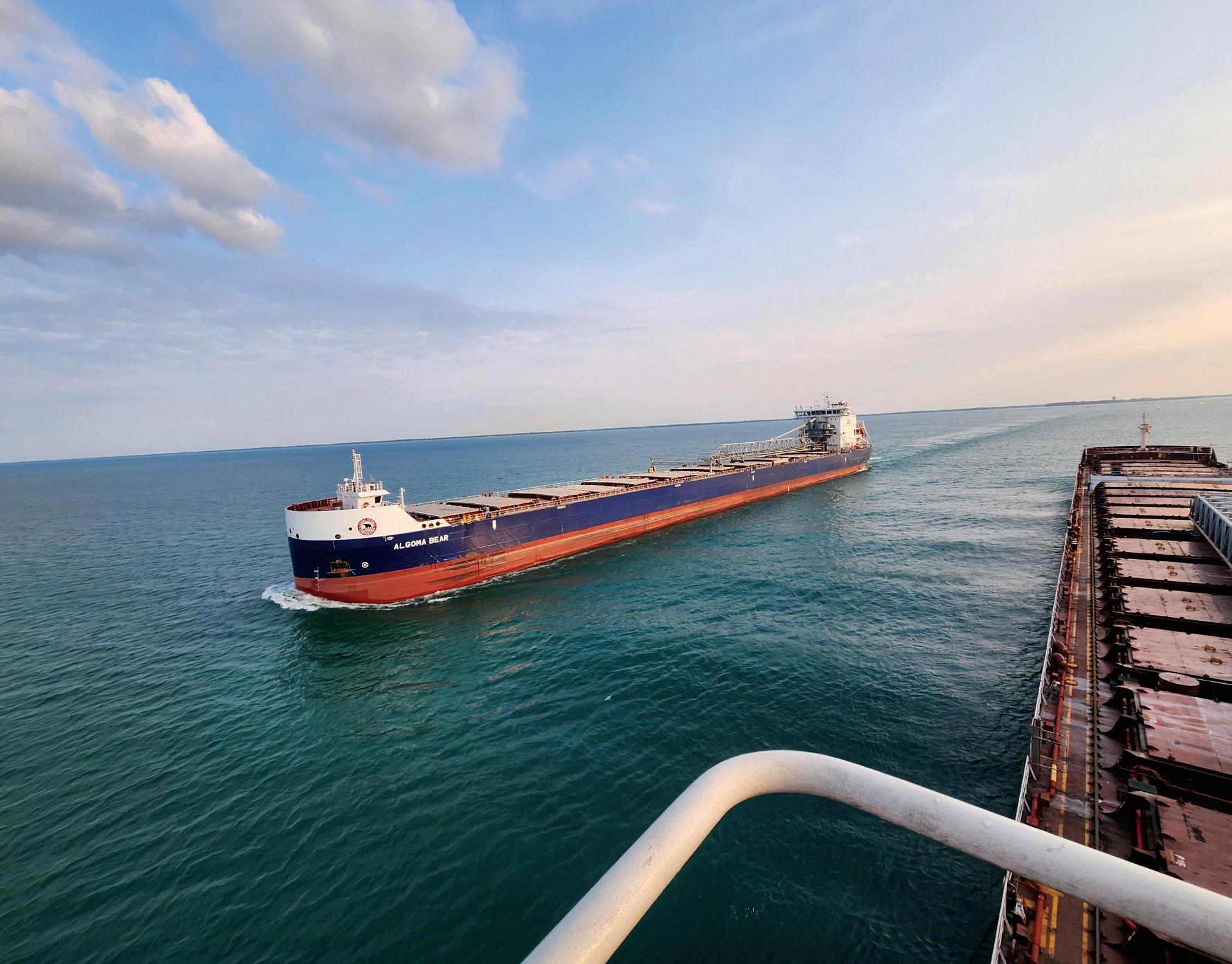
2 minute read
Charting the future with new vessels and expanding horizons
As Algoma Central Corporation celebrates its 125th anniversary on 11 August 2024, the company not only reflects on its rich history but is looking eagerly towards the future. This rare milestone marks the beginning of a new chapter, defined by growth, innovation, and fleet renewal. With 18 vessels currently on order or under construction, the next five years will bring significant advancements for Algoma, reinforcing its commitment to sustainability and operational efficiency.
Fleet renewal has enabled Algoma to continue to provide reliable and efficient service to its customers and since 2010,
Algoma has invested nearly $600 million in 11 new Equinox-class vessels. These vessels achieve a 40% improvement in carbon intensity, on average, when compared to the ships they have replaced. These ships have brought technological advancements in fuel efficiency and cargo capacity, and have enabled further investments to improve efficiency such as real-time vessel monitoring
The Algoma Bear stands out among the newly acquired Equinox Class vessels. Arriving in Canada on 29 April 2024, this 740-foot Seawaymax self-unloader is fitted with several notable enhancements, some of which are expected to improve deadweight capacity by over 1,000 tonnes compared to earlier designs.
Additionally, as a testament to Algoma’s dedication to modernizing its fleet, the company has placed a newbuild order for three methanol-ready Kamsarmax-based ocean belt self-unloaders. These ships, which are expected to exceed EEDI Level III requirements and include Tier 3 engines, will replace the oldest vessels in Algoma’s ocean self-unloader fleet and are expected to be 40% more efficient than their predecessors, owing to a combination of fuel efficiency and optimized cargo lift.


Further solidifying its future growth in expanding markets and partnering with Canadian customers, Algoma is also investing $127 million to build two new 37,000dwt ice-class climate-friendly product tankers. These vessels will serve the Irving Oil refinery in Saint John, New Brunswick, delivering to ports in Atlantic Canada and the US East Coast. The vessels are currently under construction and expected to arrive in early 2025.
The marine sector, including marine carriers like Algoma, plays a pivotal role in providing the most sustainable mode of transporting goods and is a key part of our critical supply chain network. The cargo Algoma transports around the Great Lakes – St. Lawrence Seaway is moved on behalf of key customers around the region that support major industries like construction, agriculture, and transportation. Iron ore, mined in Quebec, is transported to Hamilton, Ontario to manufacture steel, which is fundamental for producing things like cars, appliances, and construction materials. Grain, sourced from farms in Saskatchewan and Manitoba, is not only transported to mills in Ontario, but is also exported to international ports in Europe, the Middle East, and Africa from the Port of Thunder Bay, Ontario. This grain is crucial for producing bread, pasta, cereal, and various other food products. Road salt sourced from Goderich, Ontario, the largest salt mine in the world, is essential for de-icing roads during winter, ensuring safe transportation. Petroleum products from refineries in Eastern Canada are transported to distribution terminals for road transportation (gasoline), heating homes, and for the aviation industry (jet fuel).

As Algoma celebrates its 125th anniversary and steps into this next era, the company remains committed to its values and core competencies. Algoma’s investments and commitment to innovation are not only driving the company forward but also playing a crucial role in shaping a sustainable future for the marine industry and the world at large.










